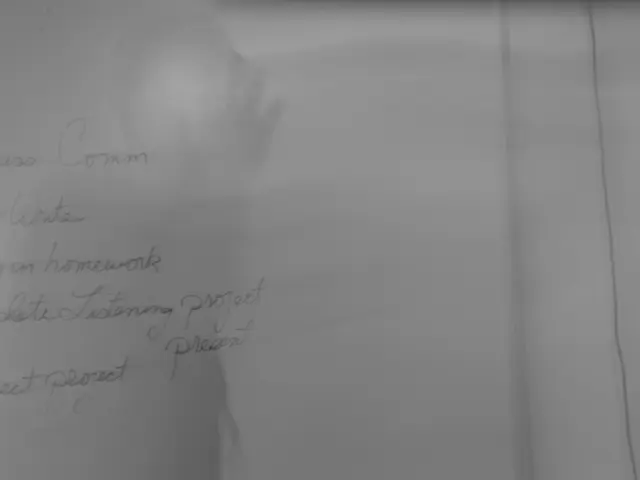Unsteady Conditions Expected Over the Next Six Months
Thailand Braces for Economic Storm with Strategic Approach
Thailand's economy might face rough waters for the next six months, according to Deputy Prime Minister Pichai Chunhavajira. To tackle this turbulence, the government will roll out proactive measures aimed at minimizing any potential negative impacts.
Mr. Pichai, who is also the finance minister, attributed the anticipated economic instability to a volatile global economic situation, primarily fueled by US President Donald Trump's tariff policy.
"The world has gone through a significant shift due to US tariff policy, which has affected all economies," he said. However, he expressed optimism that the world would eventually find a way to coexist under the new conditions, albeit with a temporary economic downturn still requiring further assessment.
Currently boasting a trade surplus with the US, Thailand plans to rebalance its trade relations by increasing imports of American goods, particularly agricultural products like maize and fish for animal feed, and energy products if their prices remain competitive.
In terms of stimulating domestic recovery, the government will focus on attracting more foreign investments, particularly those in high-tech sectors that integrate Thai supply chains. This selective approach to foreign investments aims to ensure they align with the country's long-term goals.
Domestically, the government will prioritize government investment in solving structural issues, such as flood and drought management. An entertainment complex scheme, which could potentially feature legalized casinos, remains on the table as a potential source of national revenue.
While uncertainty around the US tariff policy has caused global markets to falter, Mr. Pichai believes that Thailand's GDP could still grow by over 3% this year if there are no major disruptions. Initial estimates suggest a strong first-quarter GDP growth of around 2.5%, possibly nearing 3%, but a global economic slowdown may be more evident by the third quarter if the uncertainty persists.
To prepare for these challenges, Thailand is planning carefully prioritized investments and contingency measures. One such measure is the potential expansion of the "Khun Su, Rao Chuay" household debt relief program, where debtors who pay off 10% of their debt will have the remaining amount forgiven by financial institutions. The eligible debt threshold will be raised from 5,000 baht to 10,000 baht in the new phase of the project.
The Bank of Thailand has responded to these challenges by lowering the policy interest rate by 0.25%. Meanwhile, the Fiscal Police Office has revised Thailand's GDP growth forecast for 2025 down to 2.1%, citing the economic impact of the US tariff policies. However, if the US decides to impose only a 10% tariff on Thai imports instead of the announced 36%, Thailand's GDP could rebound to 2.5%.
To speed up the disbursement of the 2025 fiscal budget and address internal vulnerabilities like debt and inflation, the government aims for a disbursement rate of 94.4%, with current expenditure targeted at 101% and capital investment at 74.8%.
Thailand's economic future hangs in the balance, and the government's response includes a multi-pronged approach. This strategy encompasses monetary policy flexibility, diversification of export markets, cost-reduction initiatives, household debt management, and strategic priorities such as scenario planning, regional integration, and addressing structural reforms. The US tariff landscape remains a critical variable, prompting both defensive and adaptive strategies.
- The Deputy Prime Minister, who is also the finance minister, is working to integrate high-tech industries into Thailand's economy as part of their strategic approach to stimulate domestic recovery.
- Thailand plans to address economic instability, partly caused by US tariff policy, by expanding the "Khun Su, Rao Chuay" household debt relief program and raising the eligible debt threshold.
- To ensure alignment with long-term goals, the government will focus on attracting foreign investments, particularly Thai supply chain-integrating businesses, while strategically prioritizing government investments in areas such as flood and drought management.
- Thailand's economy may face a temporary economic downturn due to the volatile global economic situation caused by US tariff policy, but the government aims to grow the GDP by over 3% this year with a multi-pronged approach that includes strategic priorities like scenario planning, regional integration, and addressing structural reforms.







